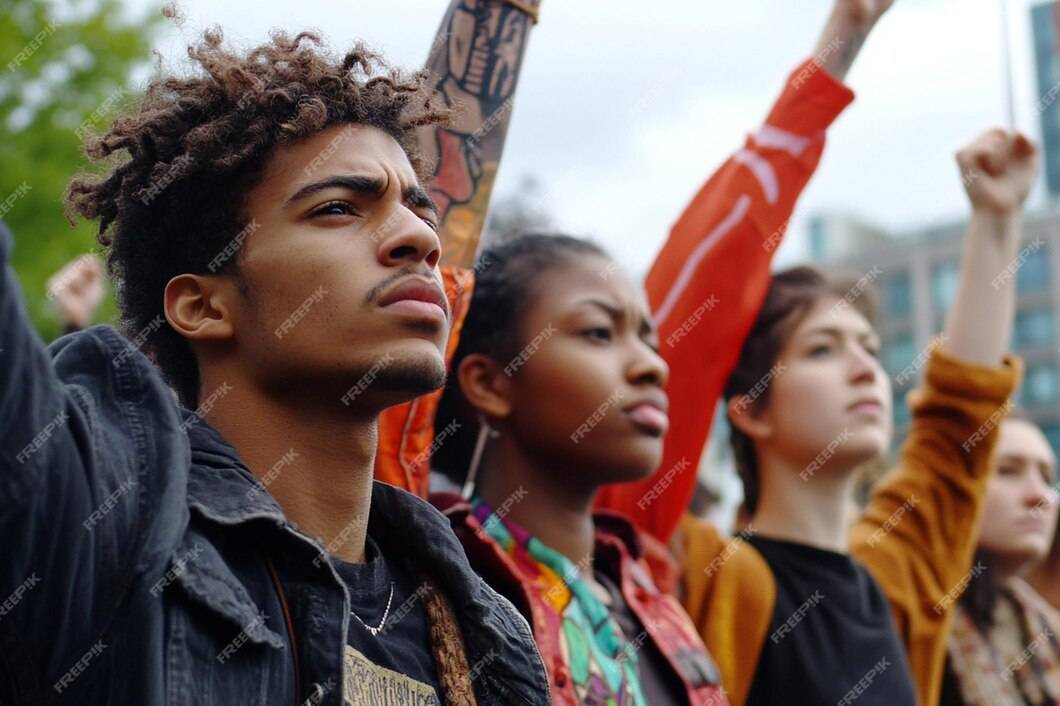Across the globe, young people are making their voices heard in politics like never before. From environmental protests to social justice movements, youth activism is driving conversations about the future of democracy, policy, and global issues. We see a rise in young politicians running for office, advocating for change, and challenging the status quo. The prominence of figures like Alexandria Ocasio-Cortez, who was elected to the U.S. House of Representatives at just 29, or Sweden's Greta Thunberg, who has led the charge in climate activism since her teenage years, signals a shift in how politics is being shaped.
But with this rise in youth participation, there’s a question that needs to be asked: Are young people bringing fresh perspectives and constructive change, or is this surge simply a manifestation of idealism that may not withstand the realities of political life?
In this blog post, we will explore the rise of young people in politics, the contributions they are making, and the challenges they face. We’ll examine whether their involvement represents genuine change and innovation or whether it’s an overly idealistic approach that might not be as practical as it seems.
The Changing Political Landscape: Young People Take Center Stage
Historically, politics has been dominated by older generations. The traditional political sphere, especially in positions of power such as the presidency, Congress, and high-ranking political offices, has largely been controlled by individuals who’ve spent decades building their careers and political influence. However, in recent years, the political landscape has seen an increasing presence of younger politicians—those under the age of 40—who are challenging long-standing norms.
One of the defining features of young politicians today is their ability to engage with issues that matter most to younger generations. Topics like climate change, income inequality, healthcare reform, and education have all been pushed to the forefront of political discourse by youth-led movements. Young politicians are also bringing new ideas on how to address these issues, often with a focus on sustainability, technology, and inclusion.
For example, the election of Alexandria Ocasio-Cortez, who ran on a platform that included the Green New Deal, free college tuition, and Medicare for All, is emblematic of the type of change that young people are advocating for. Ocasio-Cortez, who defeated a longtime incumbent in a Democratic primary, was propelled to prominence because she spoke directly to the concerns of younger voters and pushed an agenda that was rooted in progressive ideas.
Additionally, young politicians have embraced technology in ways their older counterparts have not. Social media platforms like Twitter, Instagram, and TikTok have allowed young political figures to engage directly with their constituencies, circumventing traditional media filters and creating a direct, unmediated connection with voters. This has been especially important for candidates who want to speak to the issues and concerns of younger generations in a way that feels relevant and personal.
The Influence of Youth Movements on Global Politics
The influence of young people in politics is not confined to elected offices. Youth-led movements, particularly those focused on climate change and social justice, are shaking the foundations of global political discourse.
Greta Thunberg’s “Fridays for Future†climate strikes, which began in 2018, have mobilized millions of young people around the world, bringing the climate crisis to the forefront of international attention. The movement has inspired young people to demand urgent action from politicians and has pushed governments to reassess their environmental policies. Thunberg's message has been clear and unwavering: The future of the planet is at stake, and the voices of young people must be heard in the decision-making process.
Similarly, the Black Lives Matter movement, founded by young activists, has become a powerful force for social change. What started as a hashtag and grassroots campaign has evolved into an international movement advocating for racial justice and the end of systemic racism. Young people have been at the forefront of these protests, organizing marches, raising awareness, and advocating for policy changes at local, national, and international levels.
Youth movements are not just driving policy discussions; they are reshaping how politicians and governments respond to issues. The youth-driven climate strikes have forced governments to commit to carbon reduction targets, and the Black Lives Matter movement has spurred reforms in law enforcement and calls for greater accountability in the justice system.
New Ideas and Fresh Perspectives: The Promise of Youthful Politics
One of the strongest arguments in favor of young people’s involvement in politics is the new perspectives they bring. Young politicians and activists are less likely to be bound by the political establishment’s norms, which means they are more willing to take bold stances and challenge entrenched systems of power. This willingness to embrace new ideas can lead to innovative solutions to long-standing problems.
Take, for instance, the issue of climate change. Young activists have brought a sense of urgency to the conversation. They understand that the longer we wait to address environmental issues, the worse the problem becomes. Their approach is often more radical and direct than what older generations have proposed. Rather than incremental changes, youth activists like Thunberg are calling for immediate and sweeping action, such as transitioning to 100% renewable energy, ending the use of fossil fuels, and shifting to a circular economy.
Moreover, young politicians tend to be more inclusive in their approach to policy. They are often more attuned to issues related to gender equality, LGBTQ+ rights, racial justice, and the rights of marginalized communities. This focus on inclusion is a crucial part of their appeal, as they are pushing for a more diverse, equitable, and accessible political system.
For example, Ocasio-Cortez’s advocacy for the Green New Deal is not just about climate action; it’s also about social justice. The plan incorporates provisions to address economic inequality, such as job creation, universal healthcare, and housing, which makes it resonate with a broader base of voters. Young politicians often see the interconnectedness of social, economic, and environmental issues, which allows them to propose policies that are both holistic and forward-thinking.
The Challenges of Youthful Idealism: Navigating Political Realities
While the rise of young people in politics brings fresh perspectives, it’s not without its challenges. One of the biggest critiques of young politicians and activists is that their ideals, while admirable, may be overly optimistic and disconnected from the practical realities of governing.
The political process is complicated, and enacting change often requires compromise, negotiation, and strategic alliances—skills that take time to develop. Young politicians, despite their passion and energy, may find themselves stymied by the entrenched political systems they seek to reform. The ideological purity often associated with youth can sometimes be at odds with the need for pragmatism in a complex, polarized political system.
Additionally, young politicians may face resistance from older, more established figures who hold significant influence in legislative bodies. It’s not uncommon for new political figures to be dismissed as “idealists†or “naive†by their more experienced colleagues. The challenge, then, is for young people to learn how to navigate this resistance and build coalitions that will allow them to implement their ideas.
Furthermore, the political world can be unforgiving. As young politicians rise to prominence, they often face intense scrutiny, and their personal lives and past actions become fodder for their critics. This can be particularly difficult for younger politicians, whose lack of experience in public office might expose them to mistakes or missteps that could derail their careers.
The Balance Between Idealism and Realism
The key question at the heart of this discussion is whether young people in politics are simply idealists or whether they can be effective in bringing about real, meaningful change. The answer likely lies in their ability to balance their youthful energy and idealism with the pragmatic demands of governance.
While it’s essential for young politicians to hold on to their core values and push for the change they believe in, it’s equally important for them to understand the complexities of the political system they are working within. Change doesn’t happen overnight, and the ability to compromise, negotiate, and build support is essential to getting things done.
Youthful idealism can be a powerful force for change when combined with the wisdom and experience that comes with time. The most successful young politicians will be those who are able to temper their idealism with an understanding of political realities, and who are willing to adapt their approach in order to make lasting progress.
A Bright Future or a Passing Trend?
The rise of young people in politics represents an exciting shift in the political landscape. They bring new ideas, fresh perspectives, and a level of energy that is much needed in a political system that often seems stale and out of touch with the concerns of the public. However, while youthful idealism is a powerful force, it must be tempered with an understanding of the political process and the challenges of governance.
Ultimately, the future of youth in politics will depend on their ability to navigate the complexities of power, compromise, and public expectations. As the next generation of leaders continues to ascend, their impact will be measured not just by their ideals, but by their ability to turn those ideals into tangible, lasting change. Whether this marks the beginning of a new era of politics or simply a passing trend will depend on their capacity to grow, adapt, and find common ground with others in the political sphere. The idealism of youth has always been a powerful motivator—now, it’s time for that idealism to be paired with the pragmatism that will shape the future




No comments yet
Be the first to share your thoughts!